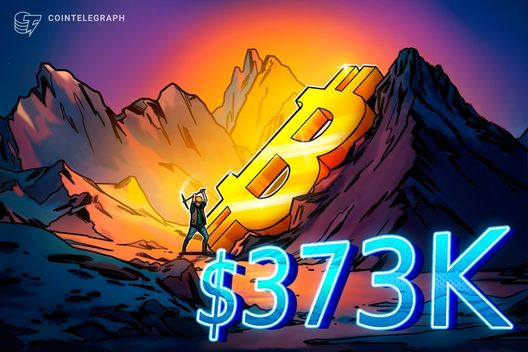

In a remarkable display of luck and determination, a solo Bitcoin miner has defied the odds and successfully mined a block, reaping a reward of 3.125 BTC, approximately valued at $372,773. This achievement occurred on Saturday, with the miner operating through the Solo CK pool, a service that facilitates solo mining endeavors. The mined block, number 907283, contained 4,038 transactions and accrued an additional $3,436 in block fees.
This event is particularly noteworthy given the increasing dominance of large-scale corporate mining firms and the rising network hashrate and difficulty, which make it exceptionally challenging for individual miners to compete. The Bitcoin network's difficulty, currently around 126 trillion, is nearing all-time highs and continues to trend upward, demanding substantial computing power and energy resources to mine a single block. This forces miners to continually invest more in their operations to maintain competitiveness.
Solo mining involves an individual competing against the entire global Bitcoin network with their own hash rate. This contrasts with pool mining, where miners combine resources and share rewards proportionally to their contribution, offering more consistent payouts. The success of a solo miner highlights the element of chance involved, making it a thrilling, albeit unpredictable, aspect of cryptocurrency mining.
While the odds are stacked against solo miners, there have been instances of success this year. In February 2025, another solo miner successfully mined a block. More recently, in July, a miner using a relatively small mining rig with just 2.3 petahashes per second (PH/s) solved a block and secured a $350,000 block subsidy. These improbable victories serve as a reminder that smaller players can still contribute to the Bitcoin blockchain.
The broader Bitcoin mining landscape is evolving, with increasing pressure on professional mining companies due to reduced block subsidies and heightened competition. Consequently, many large mining operations are diversifying into related fields such as AI data centers and high-performance computing to offset any shortfalls in the mining sector. These companies are also incentivized to seek the cheapest energy resources to maximize uptime and profitability, facing challenges related to weather, climate, and power continuity.
The recent solo mining success, while inspiring, is not necessarily indicative of a new trend. It highlights the decentralized and permissionless nature of Bitcoin and serves as a powerful reminder that individual participants can still play a significant role in the network. However, it's important to consider the fundamental economics and probabilities of the Bitcoin network, where success for solo miners remains an anomaly rather than the norm.